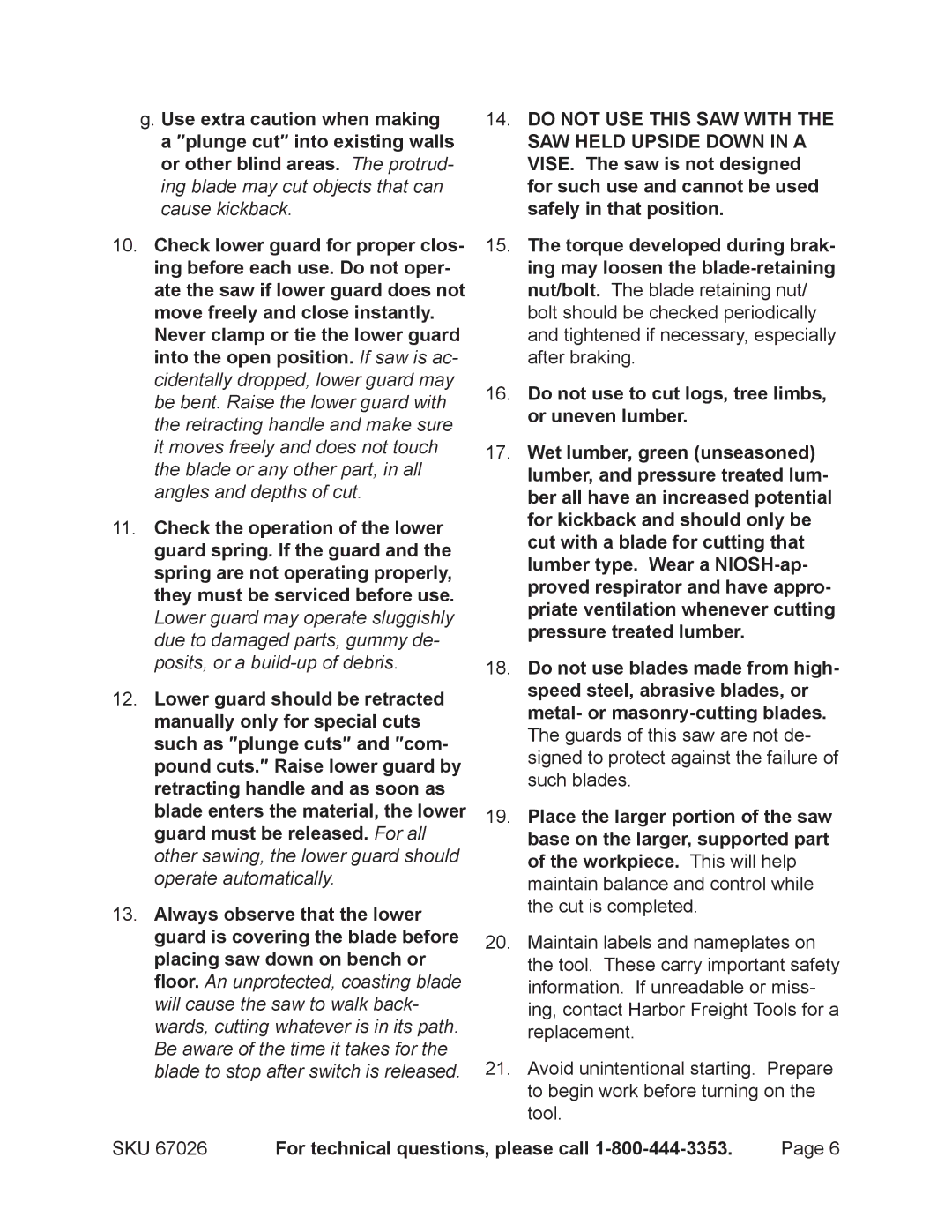g. Use extra caution when making a ″plunge cut″ into existing walls or other blind areas. The protrud- ing blade may cut objects that can cause kickback.
10.Check lower guard for proper clos- ing before each use. Do not oper- ate the saw if lower guard does not move freely and close instantly. Never clamp or tie the lower guard into the open position. If saw is ac- cidentally dropped, lower guard may be bent. Raise the lower guard with the retracting handle and make sure it moves freely and does not touch the blade or any other part, in all angles and depths of cut.
11.Check the operation of the lower guard spring. If the guard and the spring are not operating properly, they must be serviced before use.
Lower guard may operate sluggishly due to damaged parts, gummy de- posits, or a
12.Lower guard should be retracted manually only for special cuts such as ″plunge cuts″ and ″com- pound cuts.″ Raise lower guard by retracting handle and as soon as blade enters the material, the lower guard must be released. For all other sawing, the lower guard should operate automatically.
13.Always observe that the lower guard is covering the blade before placing saw down on bench or floor. An unprotected, coasting blade will cause the saw to walk back- wards, cutting whatever is in its path.
Be aware of the time it takes for the blade to stop after switch is released.
14.Do not use this saw with the saw held upside down in a vise. The saw is not designed for such use and cannot be used safely in that position.
15.The torque developed during brak- ing may loosen the
16.Do not use to cut logs, tree limbs, or uneven lumber.
17.Wet lumber, green (unseasoned) lumber, and pressure treated lum- ber all have an increased potential for kickback and should only be cut with a blade for cutting that lumber type. Wear a
18.Do not use blades made from high- speed steel, abrasive blades, or metal- or
19.Place the larger portion of the saw base on the larger, supported part of the workpiece. This will help maintain balance and control while the cut is completed.
20.Maintain labels and nameplates on the tool. These carry important safety information. If unreadable or miss- ing, contact Harbor Freight Tools for a replacement.
21.Avoid unintentional starting. Prepare to begin work before turning on the tool.
SKU 67026 | For technical questions, please call | Page 6 |
